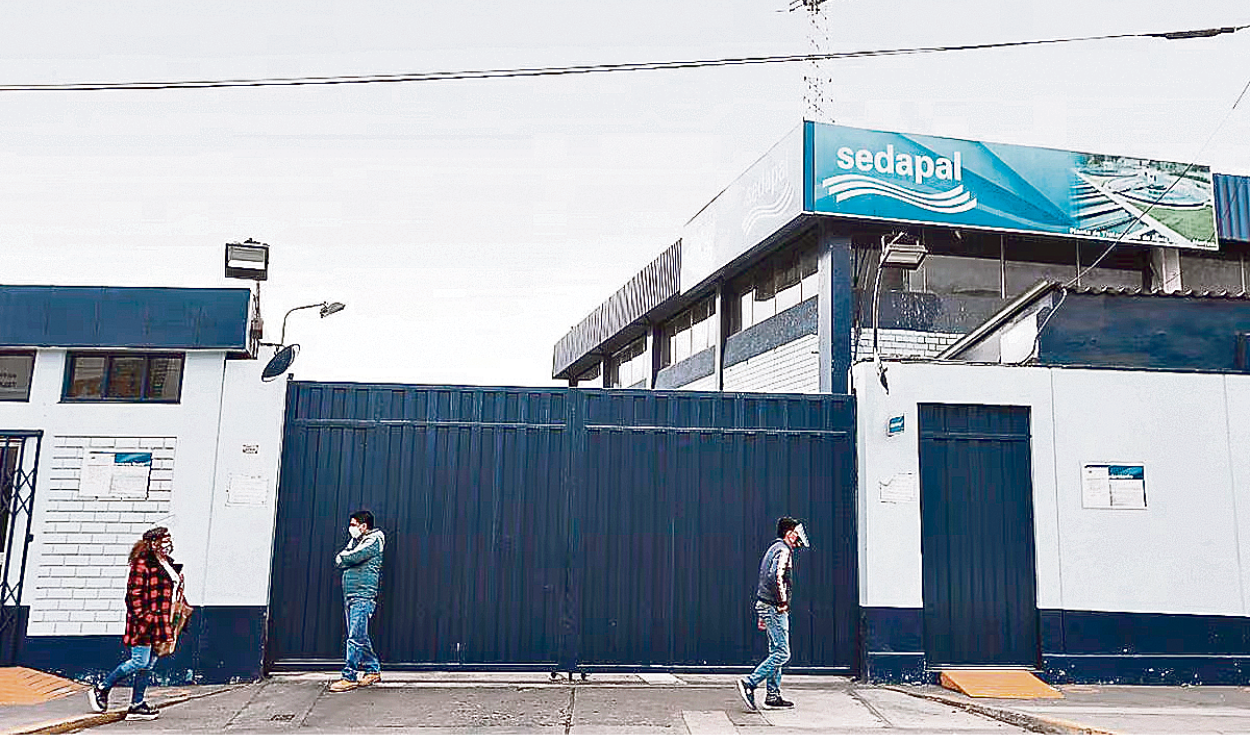
At the end of last September, the head of the Ministry of Housing, Construction and Sanitation (MVCS), Hania Pérez de Cuéllar, maintained that at the end of 2023 there would be greater clarity about the fate of Sedapalin case it should be “privatized or restructured.”
Although, initially, the head of the sector had stated that the decision to privatize the water service for 10 million Peruvians should not be taken in the “short term”, the publication of a report on the company’s situation a few days ago gave greater lights on the Government’s turnaround.
The transition of the business model that the MVCS proposes for Sedapal in the development of priority investments – among them, water sources – contemplates a commitment to Public Private Partnerships (APP) due to “the complexity and magnitude” that these water networks in the capital demand. But water auctions could also be used.
In the case of the maintenance of water networks, Pérez de Cuéllar’s office proposes dividing the city into three large blocks through “integrated management contracts”, which offer both maintenance and attention to users. With that, It is expected that, in the event that “some service fails, it can be leveraged with the other two.” All, long term.
Water for few
For Luis Isarra, general secretary of the National Federation of Drinking Water Workers (Fentap), this proposal for mixed investments for the water service in Lima translates into a covert privatization of the service, which would follow the line of other sectors such as telephony and electricity that began in the nineties.
According to Isarra, the workers do not defend the current status quo of Sedapal, since “there are many things to improve,” but he rules out that the sale of water en bloc through auctions could represent a step forward to reduce the gap that reaches 700,000 users. who, in the capital, carry water in vain.
“For years, Proinversión, MEF, MVCS and Sunass have been building a framework of regulations to be able to privatize Sedapal. They forget that in Peru there have been failures such as the privatization of water in Tumbes”, he asserted.
Fentap also recognizes that Sedapal itself supports the PPP proposal for the development of networks, since it has a vertical structure that would prevent it from opposing the designs of the MVCS.
José de Echave, CooperAcción specialist, explains that water is a public service protected under the Constitution, but with unattractive characteristics for private capital. It is not a business to take water up the hill. Even so, he rules out that privatization is the way.
“In the upper part of the basin we already have Mark I, III and IV, and II and V are still missing. There is an investment plan approved by Sedapal to carry them forward and cover the deficit,” he says.
Rates would also rise
In Sedapal’s reformist document, which is based on the powers granted by Congress to the MEF, the water tariff model is also disrupted, which depends on Sunass.
Precisely, the Association of Water and Sanitation Regulatory Entities of the Americas (Aderasa) expressed its concern the day before about measures that may “affect the autonomy” of Sunass and the technical setting of rates, crucial elements to balance costs and quality in the services. water and sanitation services.
“It is not technically appropriate to draw conclusions based on the comparison of rates from different countries.to the extent that these depend on many variables specific to each one,” said Aderasa.
The Sedapal union decided not to participate in the writing of this note.
The word
José de Echave, CooperAcción specialist
“Sedapal has to do enormous reengineering to optimize its investments, but that does not mean that the path is the privatization of a right for the city. That would be a facile attitude.”
Keys
- Supply. Sedapal is the only EPS authorized to operate in Lima and Callao, where about 29% of the national population is concentrated.
- Slope. Sedapal is regulated by Sunass, since its business has characteristics of a natural monopoly.
Source: Larepublica
Alia is a professional author and journalist, working at 247 news agency. She writes on various topics from economy news to general interest pieces, providing readers with relevant and informative content. With years of experience, she brings a unique perspective and in-depth analysis to her work.












